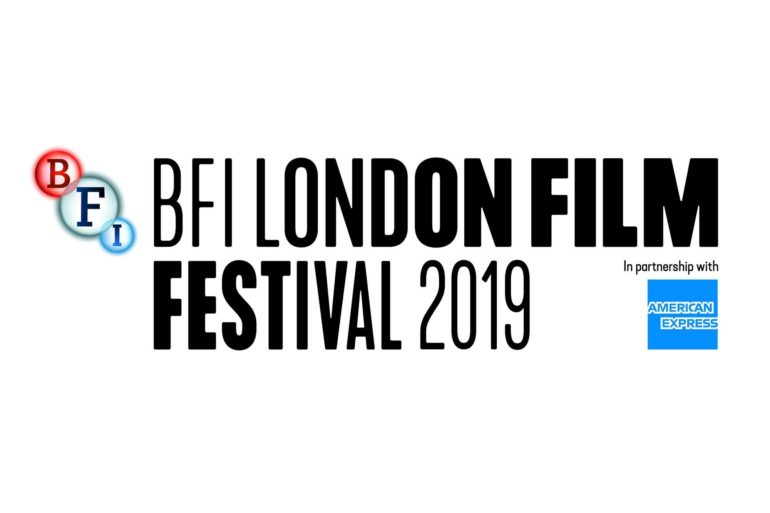Ireland is well represented in the lineup for the 63rd BFI London Film Festival with two films, The Other Lamb and Rose Plays Julie, in official competition and seven others, Calm With Horses, The Cave, Humblebrag, Ordinary Love, Rialto, Shooting the Mafia, and Vivarium, premiering elsewhere at the festival.
In total 229 feature films from some of the world’s greatest filmmakers and emerging talent will play at the festival, which runs for 12 days from October 2nd to 13th.
At this moment when the UK is adapting and reshaping our place in the world, the BFI London Film Festival really underlines the soft power of the art of film and showcases the dynamism of global exchange and partnership. All the BFI’s cultural programmes, from BFI Southbank to BFI Player, have sought to be an active champion at the heart of the global cinema story and this year’s LFF does this so powerfully with its incredibly rich and diverse programme and the international filmmaking community who love being here.
Amanda Nevill, CEO – BFI
In its 63rd year, BFI London Film Festival is one of the world’s great public film fests. And that greatness comes from the fact that we serve one of the most vibrant and international cities in the world and welcome voracious, adventurous and cineliterate audiences. While there are many talking points emerging from this year’s programme, a few really leap out: the strong instinct from filmmakers to explore urgent social and political issues through narrative and often through the use of genre; the striking emergence of a new generation of filmmakers exploding onto the international stage with startlingly bold, original and ambitious debuts; the continuing and welcome trend of increased gender balance in directing talent behind short film, first and second features. And while we are so delighted to see work from 78 countries in the Festival, we also love welcoming a particularly exceptional new wave of UK based filmmakers with cracking first and second feature films in LFF.
Tricia Tuttle, BFI London Film Festival Director
Notes below from BFI Programme
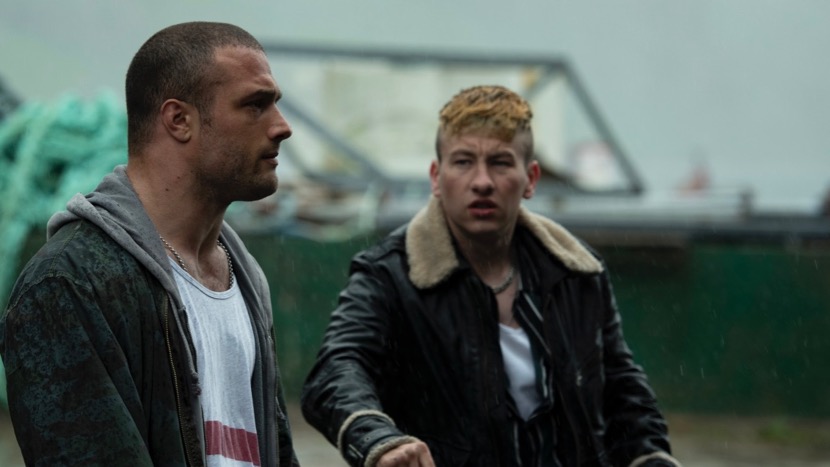
Bulky, witty and loyal, Douglas (Jarvis) has his limits with violence, but the local family business he works for has some nasty ideas about justice and he needs money to support his ex and their child. A manipulative mate and heir to the crime throne (Barry Keoghan) keeps shovelling coke up Douglas’ nose. And there’s a psycho in their midst, in the form of the ever-menacing, red-eyed Paudi (Ned Dennehy). As Douglas becomes embroiled in a violent pageant of retribution, the time soon comes to choose sides. NFTS graduate Nick Rowland’s feature debut is a gripping thriller that builds towards an emotionally shattering finale. And Jarvis enters the contemporary canon (alongside the likes of Tom Hardy, Matthias Schoenaerts and Calm with Horses exec-producer Michael Fassbender) of actors playing men whose bruised, quiet exteriors belie great inner depths.
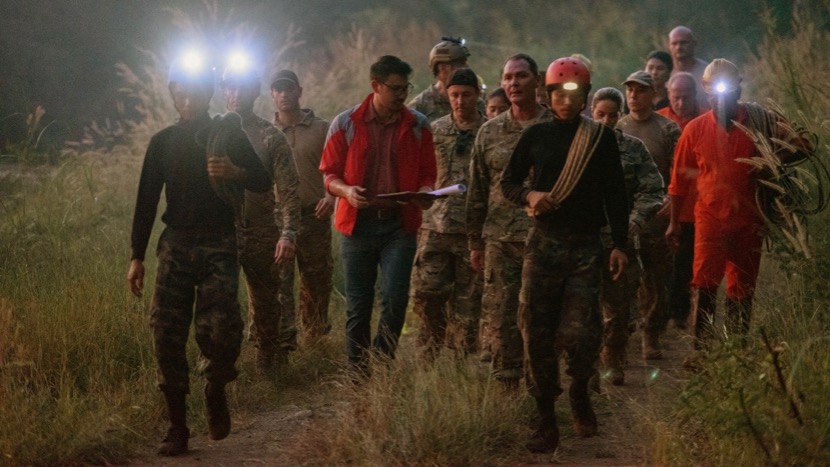
Bangkok-born, Thai-Irish writer-director Tom Waller has beaten several planned Hollywood projects in the race to dramatise last summer’s global headline-grabbing rescue of the Wild Boars boys football team from Tham Luang cave. They were trapped with their coach for 18 days during the monsoon season. Far more than just a plucky domestic production, The Cave captures the complex character of the massive international rescue effort by having several of the real-life volunteer heroes from around the world play themselves. You’ll be cheering on local engineering expert Pooyai Tun as he battles bureaucratic odds to deliver crucial water draining turbo pumps in the nick of time, while Irish cave diving specialist Jim Warny ensures that the film’s claustrophobic underwater scenes exude a clammy docudrama authenticity.
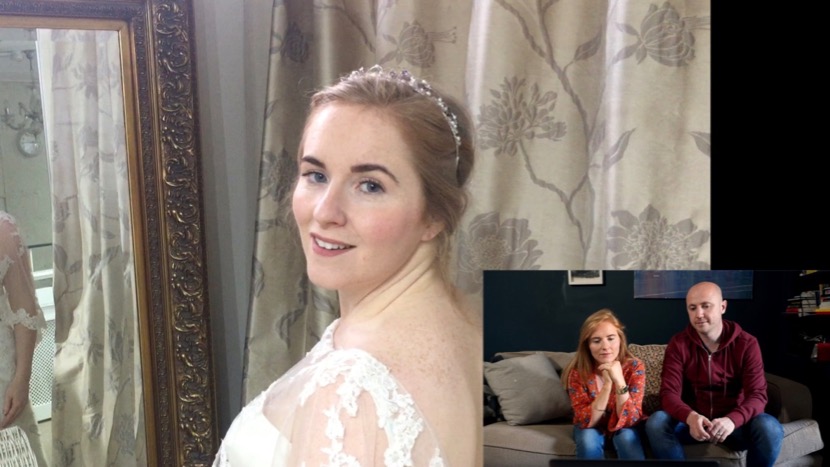
Humblebrag, which screens in the short films programme Push the Button, is directed by Sinead O’Shea. In a homemade clip show, a couple relive the good times, the bad times and the ones they hoped would remain secret.
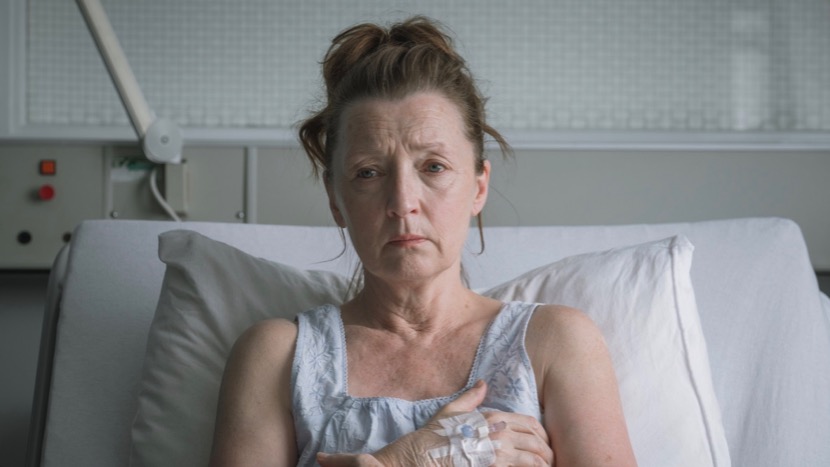
As the Christmas decorations go up, we quickly get a sense of Joan and Tom’s bantering relationship; witty and teasing, they’re a couple who can finish each other’s sentences. When Joan is diagnosed with breast cancer, Tom is there to support and we follow as they navigate the mundane and frightening new world of exams, diagnoses, and waiting rooms. Lesley Manville and Liam Neeson make vivid the subtle shifts of temperature that define long-term intimacy, as two people dealing in very different ways with acute stress and the continuing echoes of an earlier tragedy. With a sober approach that avoids any slips into sentimentality, directors Lisa Barros D’Sa and Glenn Leyburn capture both the extremity and the everydayness of cancer, in this warm and deeply affecting drama.
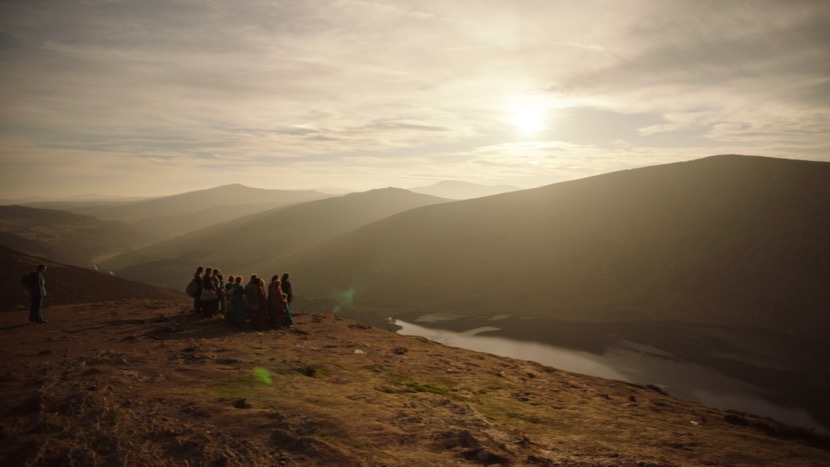
Selah was born into The Flock, a community of women and girls ruled over by Shepherd, the only male, and a seemingly benevolent but undisputed leader of the strictly regimented and isolated woodland settlement. Selah appears the most perfect of the faithful flock, until unsettling revelations see her devotion shaken. Already so impressive in The Killing of a Sacred Deer and Vox Lux, Raffey Cassidy is spectacular as Saleh, conveying bewilderment and terror, but also fierce defiance. Alongside her, Michiel Huisman (Game of Thrones) makes a messianic, unnerving Shepherd, while Denise Gough represents the danger of a woman with worldly wisdom. With The Other Lamb, the gifted Szumowska offers an eerie ethereal vision that compellingly recalls a range of references, from David Koresh’s Waco, Texas cult to Margaret Atwood’s dystopian science fiction. Working here from Catherine S McMullen’s excellent script, Szumowska returns to some themes present in previous work, with its disquieting examination of faith, compliance and the roles that gender and community play in enforcing cultural norms. As the film shows, a lack of devotion and conformity really can be a hazard to one’s health.

Dublin-based fortysomething Colm (Tom Vaughan-Lawlor) is married with two older children and a long-term job at the docks. But his placid facade masks a psyche that’s rapidly disintegrating. A recent takeover threatens his future employment, his teenage son treats him with disdain and he’s grieving the death of his own, emotionally destructive father. Colm has also become infatuated with sex worker Jay (Tom Glynn-Carney), while avoiding contact with his wife Claire (Monica Dolan). Working from Mark O’Halloran’s nuanced screenplay, Peter Mackie Burns has crafted a rich, cinematic and multi-layered portrait of a mid-life crisis, with Rialto’s visual incisiveness accentuated by its tense, enveloping sound design.
It’s during a term studying animal euthanasia that veterinary student Rose (Ann Skelly) decides to contact Ellen (Orla Brady), the birth mother who gave her up for adoption. But Ellen, who is now a successful London-based actress, doesn’t want to know. Undeterred, Rose will not be ignored. And curiosity leads her to discoveries that shake the fragile identity she has built for herself. Directors Christine Molloy and Joe Lawlor, also known as Desperate Optimists, have spent years making formally rigorous, atmospheric cinema (Helen, Mister John, Further Beyond) that often deals with the uncanny effects of impersonation and the slippery nature of truth. With Rose Plays Julie they have crafted a slow-burn thriller that builds a sense of dread inside an exquisite world of immaculate architecture, rendered through an icy performance style and enveloped by a claustrophobic soundtrack. Skelly and Brady are both exacting and measured in their delivery, as the film takes us through longing and revenge to arrive at the dark places of power and its abuses. This is frank, immersive and decidedly feminist filmmaking.
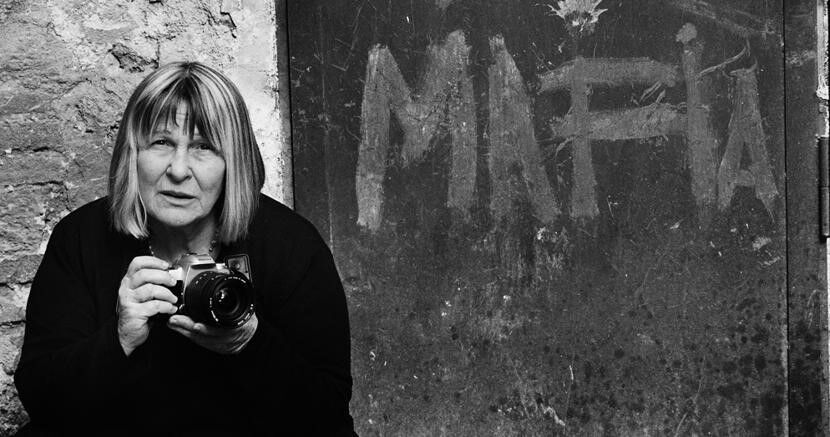
There was little to hint at Letizia Battaglia’s skill as a crime-scene photographer. In her 40s, stuck in a stuffy bourgeois household and battling with depression, she took a job as a photographer for a Palermo-based newspaper. Planning to document ordinary people’s lives, she soon found herself recording the reign of terror inflicted on the city’s inhabitants by the Mafia. Those photographs are, by turns, visually dazzling and shocking. Narrated by Battaglia, who is now in her 80s, Shooting the Mafia combines archive footage from the era when Palermo was besieged by the Cosa Nostra, alongside details of the photographer’s intrepid personal life. It’s a poignant and inspiring account of a free-spirited woman profoundly attached to her city and ready to fight for it regardless of the danger to her own life.
Young professionals Gemma and Tom are looking to buy a home together. When their local estate agent informs them of a new housing development, the enigmatically named Yonder, they ignore their initial reservations and decide to check it out. But this cautious couple should have listened to their instincts, quickly finding themselves unable to escape the seemingly endless maze of picture-perfect streets. As the weeks pass, they are forced to accept they are trapped inside this manufactured utopia. Then, one day, a baby boy is mysteriously delivered to their doorstep. Invoking both the mind-bending weirdness of a classic Twilight Zone episode and the playful contemporary satire of Black Mirror, Lorcan Finnegan’s nightmarish jaunt up the property ladder is as thrillingly provocative as it is wickedly enjoyable. Sold!

